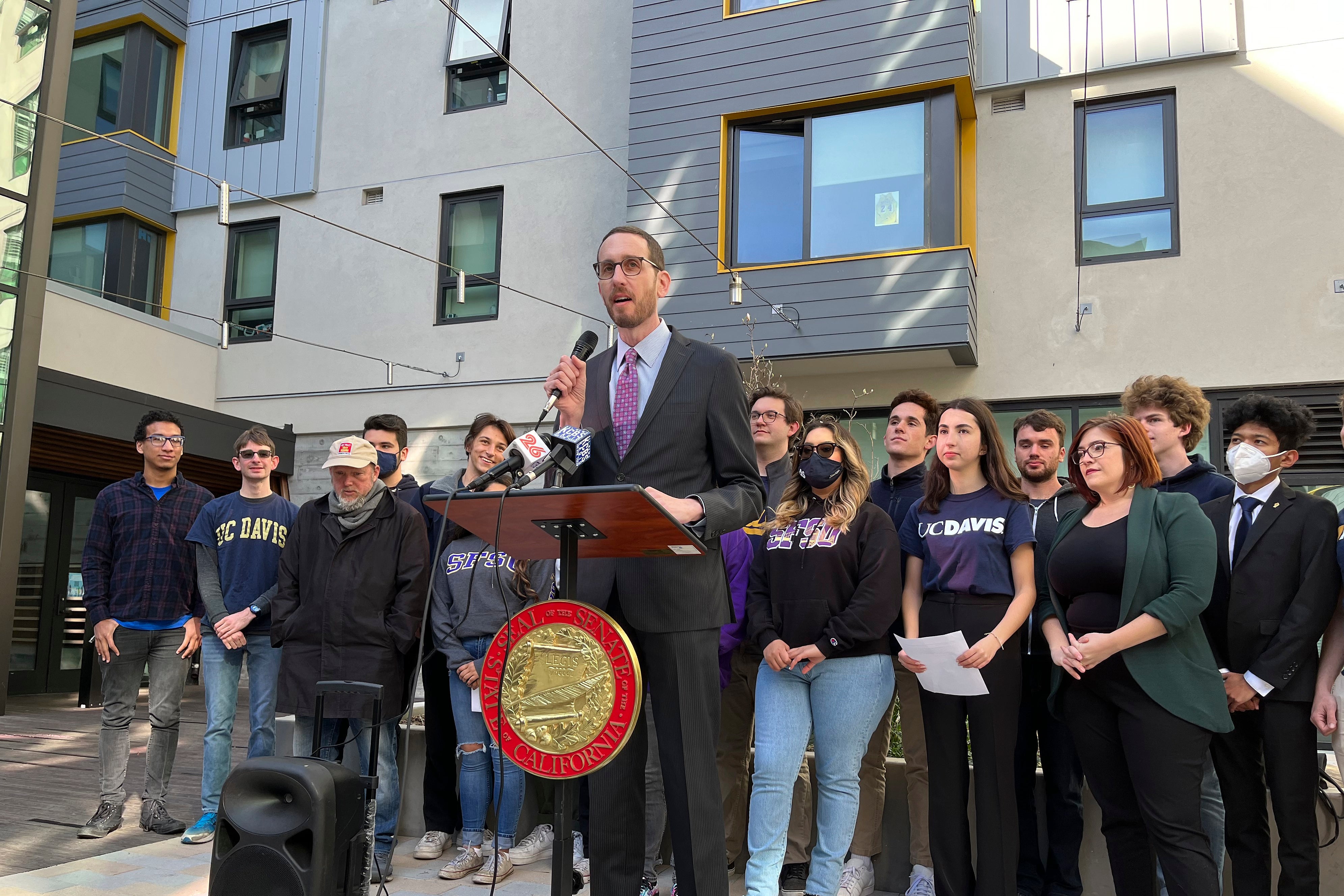California lawmakers vote to fast-track low-income housing on churches' lands
California lawmakers have voted to fast-track low-income housing on surplus land owned by nonprofit colleges and religious institutions

Your support helps us to tell the story
From reproductive rights to climate change to Big Tech, The Independent is on the ground when the story is developing. Whether it's investigating the financials of Elon Musk's pro-Trump PAC or producing our latest documentary, 'The A Word', which shines a light on the American women fighting for reproductive rights, we know how important it is to parse out the facts from the messaging.
At such a critical moment in US history, we need reporters on the ground. Your donation allows us to keep sending journalists to speak to both sides of the story.
The Independent is trusted by Americans across the entire political spectrum. And unlike many other quality news outlets, we choose not to lock Americans out of our reporting and analysis with paywalls. We believe quality journalism should be available to everyone, paid for by those who can afford it.
Your support makes all the difference.California lawmakers are considering nearly 1,000 bills during the hectic final two weeks of the Legislative session. Here’s action taken by the California Legislature Thursday:
AFFORDABLE HOUSING ON CHURCHES' LANDS
Religious institutions and nonprofit colleges in California could soon turn their parking lots and other properties into low-income housing to help combat the ongoing homeless crisis, lawmakers voted on Thursday.
The legislation would rezone land owned by nonprofit colleges and religious institutions, such as churches, mosques, and synagogues, to allow for affordable housing. They would be able to bypass most local permitting and environmental review rules that can be costly and lengthy.
California is home to 171,000 homeless people — about 30% of all homeless people in the U.S. The crisis has sparked a movement among religious institutions, dubbed “yes in God’s backyard,” or “YIGBY,” in cities across the state, with a number of projects already in the works.
But churches and colleges often face big hurdles trying to convert their surplus land and underutilized parking lots into housing because their land is not zoned for residential use. An affordable housing project in a San Jose church had to go through a rezoning process that took more than two years before it could break ground in 2021.
The goal of this legislation is to carve an easier path to build much-needed housing in the state, said Democratic Sen. Scott Wiener, who authored the bill.
The bill, which was approved by the Assembly, needs the final approval in the state Senate before heading to the desk of Democratic Gov. Gavin Newsom, who will decide whether to sign it into law.
It would only apply to affordable housing projects, and the law would sunset in 2036.
Democratic Assemblymember Sharon Quirk-Silva, who represents Orange County, said there are hundreds of faith-based organizations and several community colleges in her district that could use this bill as a tool to expedite affordable housing projects.
“If only a small fraction of them chose to build very small amount of units, we could start picking away at this issue one church at a time, one educational institution at a time,” she said Thursday.
Supporters of the bill said it could help add hundreds of thousands of affordable housing units to the state’s housing stock. A recent study by the University of California, Berkeley, Terner Center for Housing Innovation estimated California religious and higher education campuses have more than 170,000 acres (68,797 hectares) of land that would be eligible under the bill.
But several cities opposed the bill and said it would take away local control over housing developments. Environmental groups also worry the bill doesn’t have enough guardrails and would put low-income housing close to polluting areas such as freeways, industrial facilities, and oil and gas plants.
Lawmakers have until Sept. 14 to act on this and other bills. When lawmakers finish, Newsom will have a month to decide whether to sign them into law.
GENDER-NEUTRAL BATHROOM
The state Assembly on Thursday approved a bill to require schools serving first through 12th grade to have at least one gender-neutral bathroom available for students by 2026.
The legislation would apply to schools with multiple female and male restrooms. The bill comes amid debates in California and elsewhere about the rights of transgender and nonbinary students, including whether teachers should notify parents if their child changes pronouns at school.
The state’s Superintendent of Public Instruction Tony Thurmond supported the bill, saying it would help gender nonconforming students feel safe in the restroom they choose to use on campus.
“This legislation is a critical step toward preparing California students to succeed by ensuring the necessary steps of having a safe foundation to rely on; having a safe and inclusive place to use the restroom,” Thurmond said in prepared comments to the Legislature.
___
Associated Press writer Sophie Austin contributed to this report. Austin is a corps member for the Associated Press/Report for America Statehouse News Initiative. Report for America is a nonprofit national service program that places journalists in local newsrooms to report on undercovered issues. Follow Austin @sophieadanna